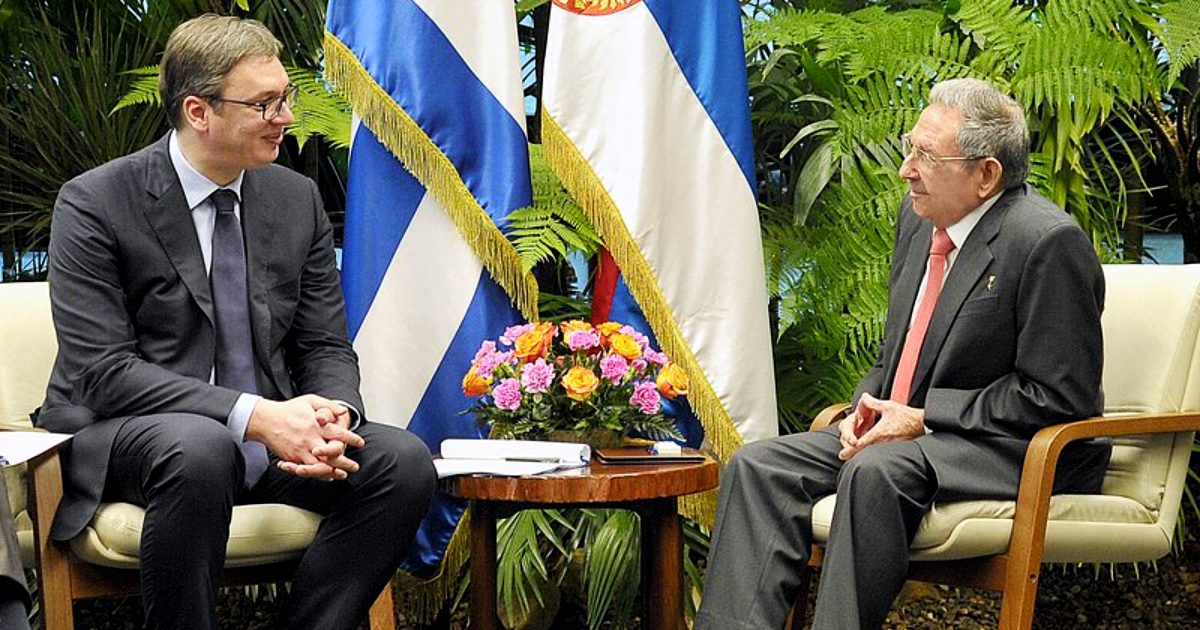A recent vote by the United Nations General Assembly, composed of 193 members, approved a resolution to establish an annual day to commemorate the 1995 Srebrenica genocide. The resolution passed with 84 votes in favor, 19 against, and 68 abstentions. According to Radio Television of Serbia (RTS), among the countries that voted against were Cuba, along with other nations such as China, Russia, and North Korea.
The resolution designates July 11 as the "International Day of Reflection and Remembrance of the 1995 Srebrenica Genocide." This genocide, in which more than 8,000 Bosnian Muslims were killed by Bosnian Serbs, is one of the worst atrocities in Europe since World War II. While the resolution does not specifically name the Serbs as responsible, it has sparked significant opposition from the President of Republika Srpska, Milorad Dodik, and the Serbian President, Aleksandar Vučić.
The Srebrenica genocide was the bloody climax of the Bosnian War (1992-1995), which erupted following the disintegration of Yugoslavia. Bosnian Serb troops invaded a UN-protected safe zone in Srebrenica, separating Bosnian Muslim men and boys from their families before executing them. Those who attempted to escape were hunted down and killed in the surrounding forests and mountains. This massacre was confirmed as genocide by two UN tribunals.
Global Reactions and Cuba's Stance
The rejection of the resolution by certain countries reflects concerns about its impact on reconciliation efforts in Bosnia-Herzegovina, a nation still deeply divided. Dodik argued that the resolution is being imposed by supporters of the Bosnian Muslims and could exacerbate ethnic tensions, even suggesting a possible secession of Republika Srpska from Bosnia-Herzegovina if the resolution were approved.
Cuba's vote against this resolution is consistent with its track record in international votes where it often aligns with countries that challenge the dominant Western narrative in international conflicts. This stance can be interpreted as part of its foreign policy aimed at maintaining friendly relations with Russia and China, as well as other countries that share a critical view of Western interventions.
Cuba's voting patterns on UN resolutions condemning Russia's invasion of Ukraine, which validate the Kremlin's viewpoints, demonstrate how its sovereignty is influenced by the dictates of allied totalitarian regimes in Havana. In June 2023, the ruler Miguel Díaz-Canel traveled to Serbia on an official visit, stating that his goal was to seek economic, commercial, and investment ties in areas of common interest, such as agriculture, biotechnology, culture, sports, education, health, and tourism.
As part of these efforts, Vučić and Díaz-Canel signed a visa waiver agreement for official and diplomatic passports, although they maintained travel restrictions for citizens that were adopted in April of that year when Serbia eliminated visa-free travel for Cuban citizens. Besides Cuba, other countries that voted against include Belarus, Eritrea, Eswatini, and Nicaragua. Meanwhile, nations like Brazil, India, and Mexico chose to abstain, highlighting the complexity of the issue and concerns about the resolution's procedure.
The Srebrenica genocide remains a sensitive topic, not only for Bosnia-Herzegovina but also for the international community. The decision to establish a day of commemoration aims to honor the victims and underscore the importance of preventing such atrocities in the future. However, the voting results reveal that deep divisions and sensitivities persist regarding how to approach and remember these tragic events.
Understanding Cuba's Position on the Srebrenica Genocide Resolution
This section addresses common questions about Cuba's stance on the UN resolution to commemorate the Srebrenica genocide, providing insights into their foreign policy and international alliances.
Why did Cuba vote against the Srebrenica genocide resolution?
Cuba voted against the resolution as part of its foreign policy that often aligns with countries opposing Western narratives in international conflicts, maintaining relations with nations like Russia and China.
What does the resolution aim to achieve?
The resolution aims to establish July 11 as the "International Day of Reflection and Remembrance of the 1995 Srebrenica Genocide" to honor the victims and emphasize the importance of preventing such atrocities in the future.
How has the international community reacted to the resolution?
The international community is divided, with some countries supporting the resolution, others opposing it, and several abstaining from the vote, reflecting the complexity and sensitivity of the issue.
What was the historical context of the Srebrenica genocide?
The Srebrenica genocide occurred during the Bosnian War (1992-1995), following the breakup of Yugoslavia. Bosnian Serb troops invaded a UN-protected safe zone, separating and executing over 8,000 Bosnian Muslims.
